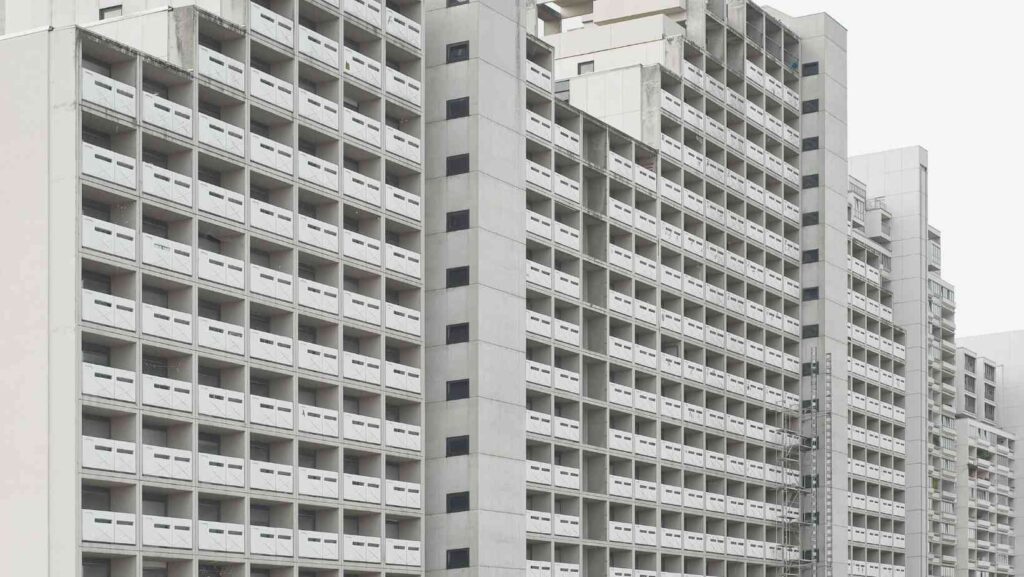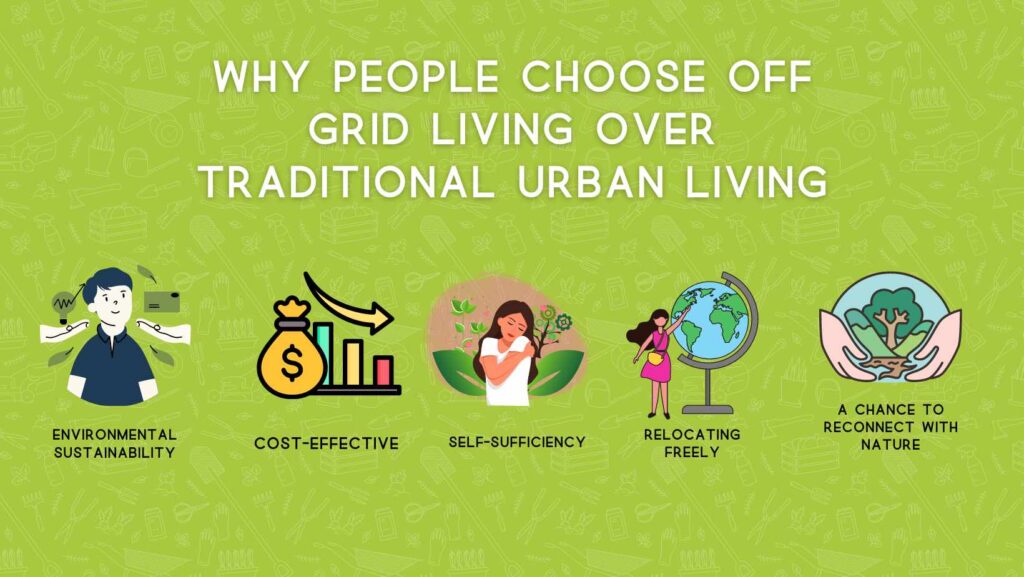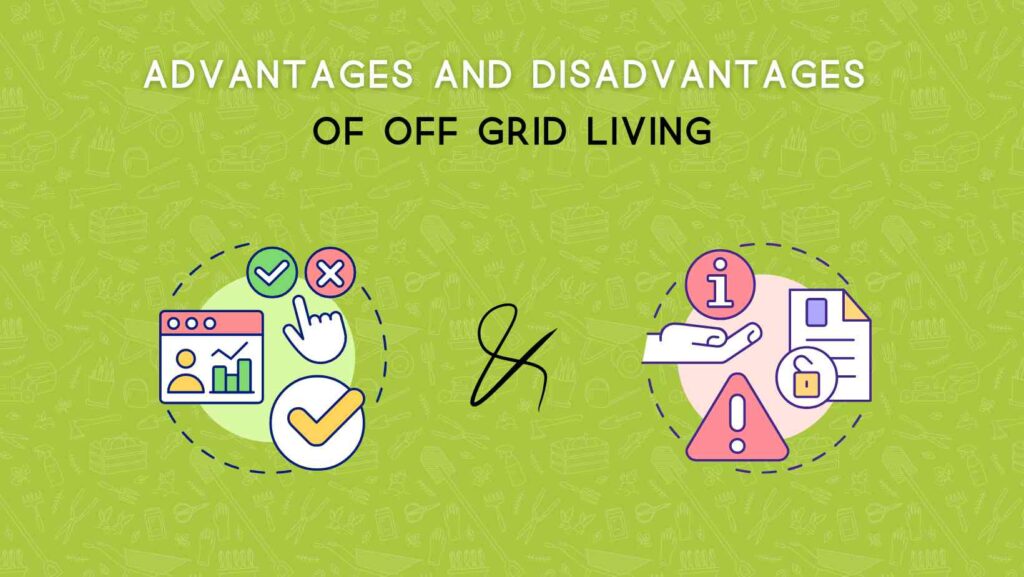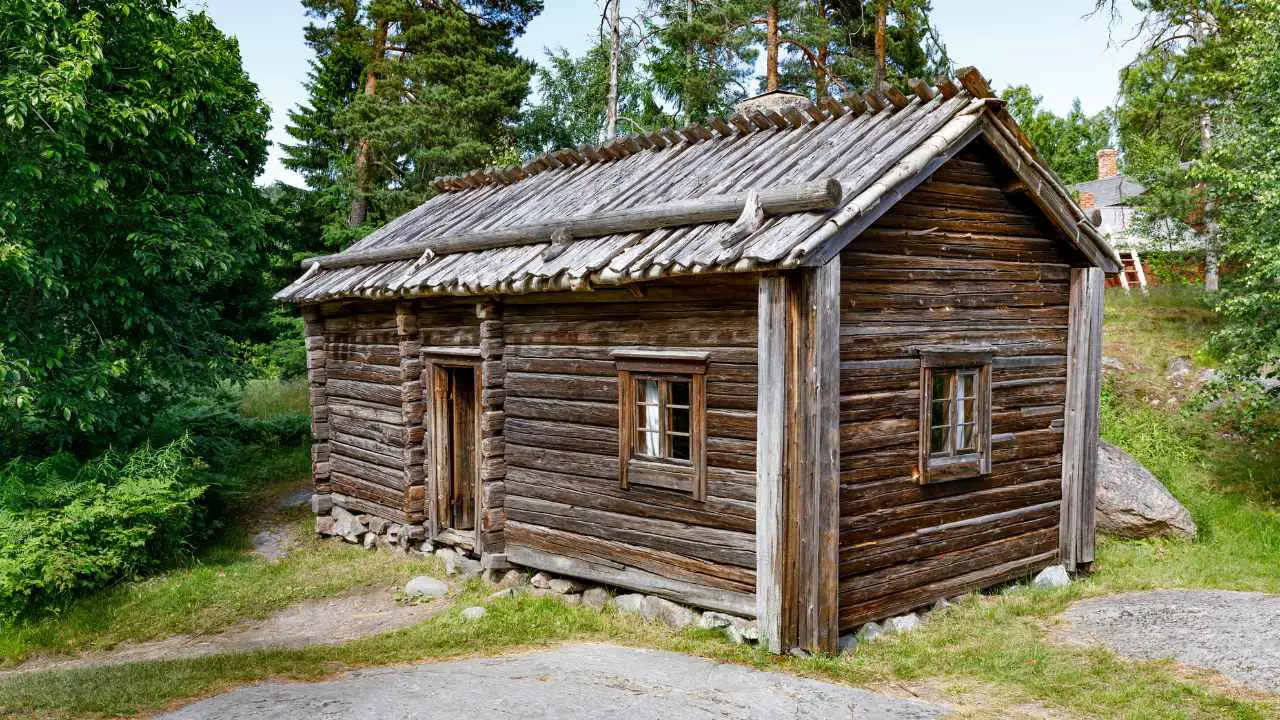Is Off Grid Living Sustainable Or Is it Really Eco-Friendly?
Yes, off-grid living can be sustainable. Off-grid living means living without relying on public utilities, such as electricity, water, and gas.
It requires living in a self-sufficient way, utilizing renewable resources like solar energy, wind power, and rainwater harvesting. By doing so, off-grid living can be a sustainable way of living, reducing one’s carbon footprint and promoting a more eco-friendly lifestyle.
Many people are choosing this lifestyle to live off the land and reduce their dependence on the conventional power grid. In this article, we will explore the benefits and challenges of off-grid living and understand how it can be a sustainable way of living.
Off Grid Living – A Trending Alternative To Traditional Urban Living
Off grid living – a trending alternative to traditional urban living
The urban rush and the tedious lifestyle have caused an increase in the number of people searching for alternative living solutions. Off grid living is among the most popular and fastest-growing alternatives.

This way of life is unique, offering independence from traditional housing services like water and electricity companies.
Residing without the connection to public utilities, or off grid living, is the aspiration of many who desire to lead a more sustainable and natural life.
Defining Off Grid Living

Off grid living is a lifestyle that involves living outside the grasp of traditional utility systems. This means living in a location where there is no access to municipal services as internet, power supply, and water. The inhabitants have to rely on alternative sources for their basic needs.
A typical off grid household uses sustainable energy sources such as solar and wind to produce electricity and reuse waste through composting.
The Appeal Of Off Grid Living
The idea of off grid living was merely practiced by survivalists and the environmentally conscious a few years back. However, there is a lot more to gain from living a sustainable lifestyle that is attracting the masses right now. The appeal of off grid living goes beyond providing a solution to rising utility bills.
It’s a way of providing harmonic balance in life by exerting control over where you reside and what you consume. It empowers individuals to make decisions that align with their priorities, beliefs, and needs.
Why People Choose Off Grid Living Over Traditional Urban Living
Off grid living offers several advantages over traditional urban living. Let’s take a look at some reasons why many people prefer off grid living:

- Environmental sustainability – living off the grid is sustainable and ensures a decreased carbon footprint. It protects the environment by eliminating the reliance on non-renewable sources of energy.
- Cost-effective – living off the grid diminishes the expenses that come with relying on municipal services. There are little to no bills for utilities, no exorbitant property costs, and maintenance fees.
- Self-sufficiency – off-grid living provides an opportunity for individuals to generate resources on their own; it encourages a more independent way of living that requires diy skills and a more hands-on approach to daily life.
- Relocating freely – residing off the grid means you’re not tied down to a particular location. You can locate your home anywhere there is sufficient natural resources to support your sustainable living needs, such as water access, good soil for farming, and sunshine.
- A chance to reconnect with nature – leaving urban rush behind and tired lifestyle, living off-the-grid offers a chance to reconnect with nature. Furthermore, the lack of noise and traffic pollution improves one’s quality of life, thereby promoting better physical and mental wellbeing.
Off grid living offers an array of benefits for individuals seeking a more sustainable, self-sufficient, and environmentally friendly way of life. It is exciting to see more and more people join this unique lifestyle and seek an independent, natural, and sustainable way of living in a world where natural resources are depleting at an alarming rate.
Sustainability – A Buzzword Of Our Generation
The Concept Of Sustainable Living
In the simplest terms, sustainable living means living a lifestyle that can be continued without degrading the environment or compromising the ability of future generations to meet their needs. This lifestyle is based on the pillars of sustainable development – economic, environmental, and social.
It involves using resources in a way that will not deplete them, being mindful of the impact of our actions on the environment, and living in a way that promotes balance and harmony with nature.
- Sustainable living involves reducing our carbon footprint by minimizing our use of fossil fuels, trees, and pesticides
- It also involves adopting a circular economy, which means reducing waste by reusing, recycling, and repurposing materials
- Another important aspect of sustainable living is to consume locally sourced products as opposed to opting for products that require long transportation distances
The Importance Of Sustainability In Modern Living
Sustainability is no longer a choice, but a necessity in modern life. The way we are consuming resources, the way we are polluting the environment, and the way we are commodifying nature, is putting us on a collision course with disaster.
The need for sustainability is more pressing now than ever before, and its importance cannot be overemphasized.
- Sustainable living is the only way to reduce our carbon emissions and mitigate the impact of climate change
- By adopting sustainable living practices, we can reduce our overall environmental impact and help preserve natural resources for future generations
- By consuming locally sourced products, we can support local businesses and reduce our reliance on products that have been transported over long distances
The Role Of Sustainable Living In Off Grid Living
Off grid living requires self-sufficiency and resourcefulness, which aligns perfectly with the principles of sustainable living. Living off the grid requires individuals to be mindful of their resource consumption and adopt sustainable practices to ensure they are adequately provided for.
- Off grid living may require homeowners to use renewable energy sources such as solar panels or wind turbines to produce electricity
- It may also require individuals to adopt a minimalistic lifestyle, reducing waste and consuming fewer resources
- Living off the grid often involves growing food locally and adopting environmentally friendly farming practices. This can lead to a stronger reliance on local resources, reducing the negative environmental impact that comes with long transportation distances.
Living sustainably is not an easy task, but it is a task that is critical for the survival of our planet. Whether we live on or off the grid, we all have a responsibility to take care of our environment and use resources in a way that will not compromise the well-being of future generations.
Debunking Myths: The Reality Of Off Grid Living
Living off the grid can sound like a daunting prospect. Many people are hesitant to take the leap into off-grid living because they believe it is expensive, uncomfortable, and isolated. The truth, however, is much different from popular belief. In this section, we’ll debunk some common myths that keep people from pursuing an off-grid lifestyle.
Myth 1: Off Grid Living Is Expensive And Unaffordable
Reality: off-grid living can be expensive to start but, over time, it can save you money and be cheaper than living on the grid. Some of the costs of living off the grid include the installation of solar panels, wind turbines, and a well.
Despite the initial costs, living off the grid means you won’t have any utility bills to pay. Additionally, you can grow your food, which will save you money on groceries. You’ll have to invest in high-quality equipment and energy-efficient materials to save on energy costs in the long run.
Myth 2: Off Grid Living Is Uncomfortable And Inconvenient
Reality: while living off the grid does come with challenges, it’s not as inconvenient as you might think. With solar panels, wind turbines, and a well installed in your home, you will have the same amenities as a home connected to the grid, such as hot water, electricity, and running water.
In fact, if your energy sources are sufficient, you can have an even better standard of living than a grid-connected home. With a composting toilet and a reliable heating system, you can enjoy a comfortable, sustainable life.
Myth 3: Off Grid Living Is Isolated And Primitive
Reality: living off the grid doesn’t mean living in isolation or primitive conditions. Today, many people choose to live off-grid in community settings, with like-minded people who share their values. Moreover, with advancements in technology, it’s easier than ever to stay connected to the world.
For example, with a satellite internet connection, you can work from home, connect with friends and family on social media, and even stream movies and tv shows.
Living off the grid has its challenges, but it’s not as difficult or inconvenient as many people think. With careful planning and the right resources, you can enjoy a sustainable, comfortable, and connected life off the grid.
Advantages And Disadvantages Of Off Grid Living
The Benefits Of Off Grid Living For The Environment And Individuals
Living off the grid is a sustainable lifestyle that offers many benefits for individuals and the environment. Here are some of the key advantages of off-grid living:

- Independence: Off-grid living allows individuals to be self-sufficient and not rely on traditional utilities like electricity, gas, and water supply. This is beneficial for those who want to reduce their carbon footprint and live a more sustainable lifestyle.
- Cost savings: Living off the grid can save individuals a considerable amount of money on utility bills and other expenses associated with city living.
- Reduced impact on the environment: Since off-grid living doesn’t involve traditional utilities, it has a much smaller environmental impact. Additionally, the majority of off-grid homes use solar power, which is renewable and sustainable, thus reducing pollution and the greenhouse effect.
- Health benefits: Off-grid living promotes a healthy lifestyle since it requires individuals to be more physically active by maintaining their own resources.
The Challenges Of Off Grid Living And How To Overcome Them
Living off the grid has its own set of challenges. However, with proper preparation, it’s possible to overcome these challenges. Here are some of the common issues encountered by off-gridders:
- Reliable power sources: Solar energy is the most common source of power for off-grid living. Still, it can be unreliable on cloudy days and at night. The best solution is to invest in a backup generator or battery storage system to ensure that the power supply doesn’t suddenly cut out.
- Water security: Access to water supply is essential, for off-grid living. But getting water through rain harvesting and wells can be unreliable. However, individuals can opt to store large amounts of water to offset the unpredictable availability of water.
- Waste management: Off-gridders have to deal with wastewater and waste materials without the help of waste management professionals. One solution is to install proper composting toilets or plumbing systems to reduce waste production.
Analyzing And Weighing The Pros And Cons Of Off Grid Living
Before deciding to live off the grid, it’s essential to analyze and weigh the pros and cons. Here are a few:
Pros:
- Freedom and self-sufficiency.
- Lower utility bills.
- Reduced environmental impact.
Cons:
- The initial cost of setting up an off-grid system can be expensive.
- Reliable water supply can be tricky.
- Making a living can be challenging without modern amenities.
Living off the grid is an exciting and sustainable lifestyle choice for those looking to reduce their environmental impact and live a more fulfilling life. However, careful consideration of the pros and cons of off-grid living is vital before making the decision.
Off Grid Living And The Future Of Sustainable Living
Living off the grid has been a topic of discussion for a long time and has gained popularity in recent years. For those not familiar with the term, ‘off-grid living’ is when a household or community is not connected to the public power grid.
In other words, they generate their own power via solar panels, wind turbines, or rely on generators.
There are a few key points to consider regarding off-grid living and its potential in creating a more sustainable society:
The Potential Of Off Grid Living In Creating A More Sustainable Society
- Off-grid living could potentially eliminate the need for fossil fuels, as the reliance on renewable energy sources increases.
- It promotes minimalism and reducing energy consumption, which can lead to less waste.
- Using renewable energy sources can lead to reduced carbon emissions and overall environmental impact.
While there are many benefits to living off the grid, it is important to note that there are some limitations and challenges when it comes to incorporating this lifestyle into urban areas.
The Limitations And Challenges Of Incorporating Off Grid Living Into Urban Areas
- City regulations and bylaws may make it difficult for people to build off-grid homes.
- It can be challenging to find affordable and suitable space to build an off-grid home in an urban environment.
- The upfront cost for setting up an off-grid home can be quite high.
Despite these challenges, off-grid living could be a potential solution to many of the environmental challenges that we face today. Here are a few future possibilities that could make off-grid living a viable form of sustainable living:
The Future Possibilities Of Off Grid Living As A Sustainable Living Solution
- With advancements in technology, we may be able to reduce the upfront costs of setting up an off-grid home.
- Sustainable communities could be developed, with shared infrastructure and common spaces, making off-grid living more accessible.
- Governments could provide incentives for homeowners who adopt renewable energy sources, making off-grid living more attractive and cost-effective.
While off-grid living may not be feasible for everyone, it does have the potential to create a more sustainable society. As technology advances and the benefits become more apparent, it may become a more viable option for those looking for a sustainable living solution.
Frequently Asked Questions For Is Off Grid Living Sustainable
Is Off-Grid Living Sustainable In The Long Term?
Yes, off-grid living is sustainable in the long term. With proper planning, off-gridders can rely on renewable resources such as solar power, wind turbines, and hydro power to provide electricity, and rainwater harvesting, wells, or natural springs to provide water.
How Expensive Is It To Go Off-Grid?
The cost of going off-grid depends on various factors including the size of your property, location, usage, and the resources needed to live sustainably. However, in the long run, off-grid living can save you money on utility bills.
Is Off-Grid Living Legal?
Off-grid living is legal, as long as the building complies with local building codes and zoning regulations. In some areas, it may be difficult to obtain permits for certain aspects of off-grid living, such as digging a well or installing a septic system.
What Are The Challenges Of Off-Grid Living?
Challenges of off-grid living include relying on renewable resources, managing waste, and maintaining infrastructure. In addition, living off the grid can be isolating and require a significant lifestyle change.
How Do You Ensure A Reliable Power Supply Off-Grid?
To ensure a reliable power supply off-grid, it’s important to invest in high-quality renewable energy equipment such as batteries, solar panels, and wind turbines. Conserving energy by using efficient appliances and limiting usage during periods of low sun or wind can also help.
Conclusion
Overall, off-grid living can be a sustainable option for those who are committed to minimizing their impact on the environment.
Though it requires a high level of dedication, planning, and resourcefulness, it can provide a greater sense of self-sufficiency, independence, and connection to the natural world.
It also offers the potential for significant cost savings over time. However, it’s important to remember that it may not be a feasible option for everyone, and that it’s important to thoroughly research and plan for the challenges that come with off-grid living.
Whether off-grid living is sustainable or not ultimately depends on the individual’s commitment to a sustainable lifestyle and their ability to adapt to the unique challenges of living off the grid.
If done thoughtfully and intentionally, off-grid living has the potential to be a viable and sustainable way of life. After Reading this article you have got the message that Is Off Grid Living Sustainable Or Is it Really Eco-Friendly?


2 thoughts on “Is Off Grid Living Sustainable: Unveiling the Truth”